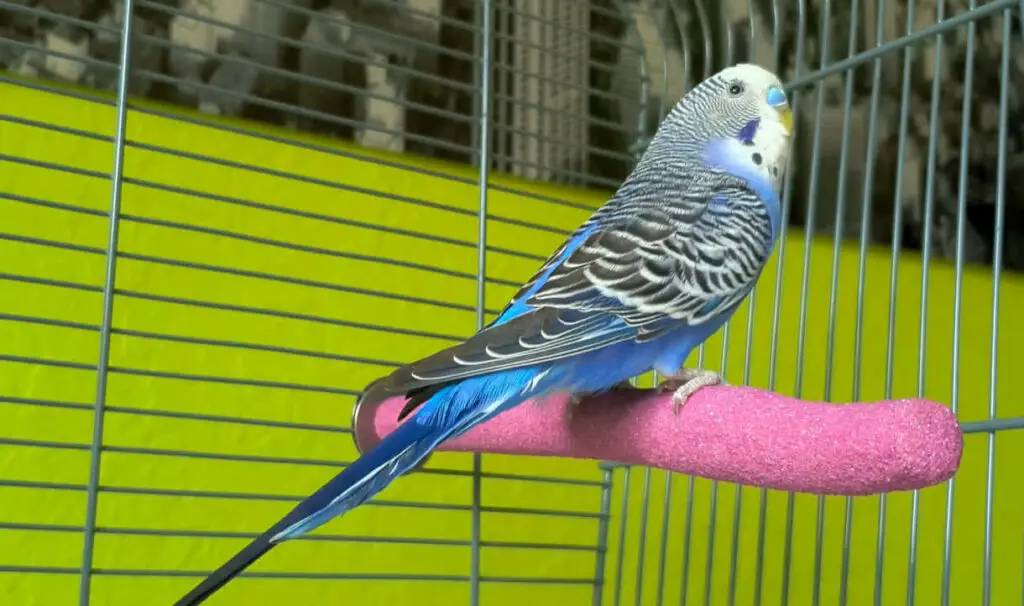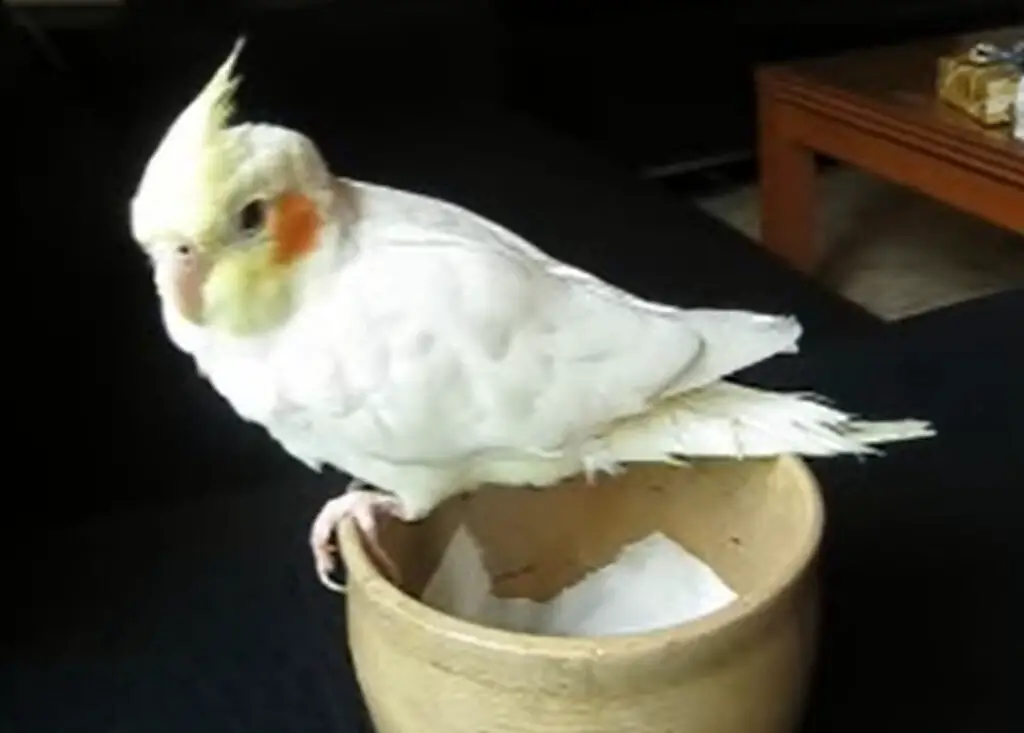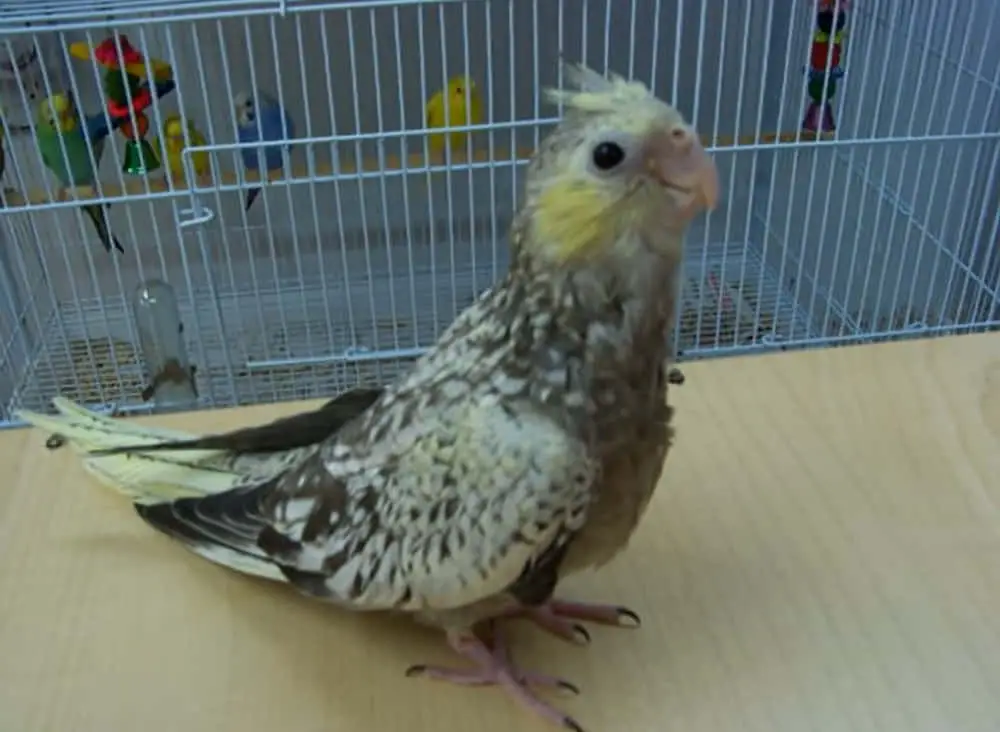A cockatiel nostril clogged subject might be fairly regarding.
However on the similar time, this can be a widespread downside with birds, creating nostril points. But, one factor to notice about it’s that it isn’t a life-threatening situation. Nevertheless, it’s uncomfortable, which is why it’s good to know why this occurs.
Moreover, you might discover that your cockatiel tends to sneeze greater than different chook species. When this occurs, it’s potential that your pet is affected by irritation, infections, or maybe one thing is lodged inside its nostril.
With all these items in thoughts, it’s good to know what the widespread causes of this subject is and what you are able to do to alleviate your pet’s situation. Let’s get began.

Contents
Cockatiel Nostril Clogged – Why This Occurs
When your cockatiel is wholesome, the nostrils are sometimes dry and the feathers proper above them are clear. You may as well discover the ceres to be tender and easy with none sores or protrusions.
However, when the nostrils seem like blocked, stained, moist, or congested, it’s potential that one thing isn’t fairly proper along with your pet. There are lots of the explanation why this may increasingly occur together with a fungal an infection, mites, or micro organism. Thus, the nostrils find yourself being moist and clogged.
Usually, your pet cleans its nostrils by sneezing. Additionally they use their claws to do away with any particles or filth of their nostril. However you may also additional help your pet by inserting it within the bathe. Then, spray the nostrils gently utilizing a water bottle, so the nostril will receive the humidity and moisture it wants to remain wholesome.
A wholesome cockatiel has tender and easy ceres. That is the pores and skin masking the realm on high of the beak. Furthermore, the nostrils, that are discovered inside their cere must be easy. Examine the nostrils and make sure there aren’t any international objects or scabby secretions. The small nasal cavities also needs to be fairly seen, which suggests there isn’t any clog of some kind.
Causes of Nostril Points With Cockatiels

There are a number of the explanation why your cockatiel could have a clogged nostril. For probably the most half, environmental components are sometimes the first reason behind this subject. Because of this it’s best to be sure that your pet is in a protected and safe location.
Listed below are numerous causes for a cockatiel nostril clogged subject:
1. Fungal or bacterial infections
When there may be micro organism within the surrounding space, your cockatiel’s nostril could get contaminated. Moreover, fungus development and infestation could come up when there isn’t any correct air flow. Because of this recent air is essential, particularly when you may have the heater or AC on. When you may have soiled filters, it’s seemingly for fungal sports activities to develop after which unfold across the room and into your pet’s nostril.
Ultimately, the organism that enters the nostril can result in additional problems and secondary infections. Therefore, you have to to make use of fungicides or antibiotics to be sure that these nasal infections are handled correctly.
2. Vitamin Deficiency
A poor food plan also can end in your cockatiel’s nostril being clogged. For example, when there may be inadequate vitamin A within the food plan, this may increasingly trigger some nasal points. Thus, you could present the appropriate food plan on your pet that’s significantly wealthy in vitamin A to enhance your chook’s well being and situation.
3. Overseas Object
There are occasions when very small particles or international objects can get lodged inside your pet’s nostril. These embrace – however not restricted to – feathers, filth, fur, and crumbs.
The pure tendency of a cockatiel is to sneeze when there are objects inside its nostril. This manner, the particles can get expelled. Nevertheless, if the particles is caught and can’t get out, then an avian vet will advocate saline nostril drops to take away this object.
4. Mites
Though it isn’t quite common for birds to catch mites, it’s nonetheless potential for some sorts of mites such because the scaly face mites to develop round your pet’s head and face. This ends in painful and crusty sores across the beak’s corners.
It begins as a white deposit, which will get denser over time. This occurs because the mites get lodged on this space additional down. In consequence, your pet’s nostril seems sore and scaly. You possibly can take away these mites utilizing olive oil, oral treatment, or mite sprays. Make sure to get this subject addressed before later to ensure the situation doesn’t worsen.
5. Lack of Humidity
As cockatiels naturally thrive of their habitat in Australia, which is humid, it isn’t perfect for them to be caught in a dry atmosphere equivalent to an AC room. In any other case, they might endure from respiratory issues equivalent to a clogged nostril.
What you are able to do to alleviate this subject is by establishing a humidifier so as to add some moisture to the air. Nevertheless, it’s best to keep away from digital humidifiers that have a tendency to gather mineral deposits or mud over time, which might do extra hurt than good to your pet’s well being.
Make it some extent to wash the humidifier to ensure there aren’t any fungi or micro organism rising in it, which might in a while develop into a reason behind respiration points on your pet.
6. Dangerous Chemical compounds
If you clear the room with family supplies or chemical compounds which might be harsh on your pet’s well being, this may increasingly affect your cockatiel’s delicate respiratory system. Therefore, irritation can happen and irritate the nostrils of your pet. Because of this it’s best to use pure and pet-safe cleansing merchandise that can stop such nostril points from creating.
Learn Extra: 10 Week Old Cockatiel Proper Care And Guide
Last Ideas
When you may have a cockatiel with nostril clogged, it’s best to have this subject addressed rapidly with correct treatment. Make sure to communicate along with your vet to be taught extra about the appropriate medication or methods appropriate on your chook’s particular situation to stop issues from getting worse.







